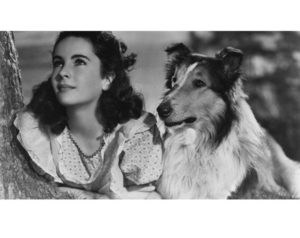The Brussels Griffon, a small breed with a big personality, has captured the hearts of dog lovers around the world. Known for their distinctive appearance and affectionate nature, these little dogs make excellent companions for families and individuals alike. In this article, we’ll explore the history, characteristics, care needs, and training tips for this delightful breed, helping you understand why the Brussels Griffon might just be the perfect addition to your home.
A Brief History of the Brussels Griffon
Originating in Belgium, the Brussels Griffon was developed in the late 19th century. This breed was created by crossing the Brussels dog with the Affenpinscher and possibly the English Toy Spaniel. Initially bred to be a rat-catching companion in stables and breweries, the Brussels Griffon quickly gained popularity among the aristocracy due to its charming looks and lively disposition.
The breed was officially recognized by the American Kennel Club (AKC) in 1910, and since then, it has become a beloved companion across the globe. Their unique facial features and expressive eyes give them a distinctive look that sets them apart from other toy breeds.
Physical Characteristics
The Brussels Griffon is a small dog, typically weighing between 8 to 12 pounds and standing about 7 to 12 inches tall. They have a rounded head, short muzzle, and large, dark eyes that convey a sense of intelligence and curiosity. One of the most charming aspects of this breed is their expressive facial features, which often reflect their emotions.
There are two coat types for Brussels Griffons: rough and smooth. The rough variety has a wiry, textured coat that requires regular grooming to prevent matting, while the smooth variety has a short, glossy coat that is easier to maintain. Both coat types come in various colors, including red, black, and blue.
Temperament and Personality
Brussels Griffons are known for their affectionate and playful nature. They thrive on human interaction and often form strong bonds with their owners. This breed is highly intelligent and can be quite curious, making them entertaining companions. They are generally good with children and can adapt well to various living situations, whether in an apartment or a house with a yard.
However, it’s essential to note that Brussels Griffons can be quite vocal. They tend to bark to alert their owners of any perceived threats, which makes them excellent watchdogs despite their small size. Socialization from a young age is crucial to ensure they develop a balanced temperament and are comfortable around other animals and people.
Care and Maintenance
Grooming
Grooming is an important aspect of caring for a Brussels Griffon. For those with a rough coat, regular brushing is necessary to prevent tangles and matting. A professional grooming session every few months can help maintain their coat in optimal condition. Smooth-coated Griffons require less grooming, but occasional brushing will help reduce shedding.
Exercise Needs
Despite their small size, Brussels Griffons have moderate energy levels. They enjoy short walks and play sessions, which are essential for keeping them physically and mentally stimulated. Interactive toys and games can provide additional exercise and prevent boredom. Aim for at least 30 minutes of exercise each day to keep your Griffon happy and healthy.
Nutrition
A balanced diet is vital for the overall health of your Brussels Griffon. High-quality dog food that meets their nutritional needs is essential. Consult your veterinarian to determine the best diet for your dog’s age, weight, and activity level. Be mindful of portion sizes, as small breeds can be prone to obesity.
Health Considerations
Like all breeds, Brussels Griffons are susceptible to certain health issues. Common concerns include:
- Brachycephalic Airway Syndrome: Due to their short muzzles, they can experience breathing difficulties, especially in hot or humid conditions.
- Eye Problems: Their prominent eyes can be prone to various issues, including cataracts and corneal ulcers.
- Hip Dysplasia: This genetic condition can affect their mobility and quality of life.
Regular veterinary check-ups are essential to monitor your Brussels Griffon’s health and address any concerns promptly.
Training Your Brussels Griffon
Training a Brussels Griffon can be a rewarding experience. Their intelligence and eagerness to please make them relatively easy to train, but consistency and positive reinforcement are key. Here are some effective training tips:
Start Early
Begin training and socialization as early as possible. Exposing your Griffon to various environments, people, and other animals will help them become well-adjusted adults.
Use Positive Reinforcement
Reward your dog with treats, praise, or playtime when they exhibit desired behaviors. This approach fosters a positive learning environment and strengthens your bond.
Keep Training Sessions Short
Brussels Griffons have a short attention span, so keep training sessions brief and engaging. Aim for 5-10 minutes per session, focusing on one command at a time.
Be Patient
Like all dogs, Brussels Griffons may take time to learn new commands. Patience and consistency are essential in helping them grasp new skills.
The Perfect Family Companion
Brussels Griffons are well-suited for various living situations and can thrive in both urban and rural environments. Their affectionate nature makes them great companions for families, singles, and seniors alike. They enjoy being part of family activities and often crave attention from their owners.
Ideal Living Conditions
While Brussels Griffons can adapt to apartment living, they do best in homes where they can receive plenty of social interaction. They thrive on companionship and should not be left alone for long periods, as this can lead to separation anxiety.
Travel Companions
If you love to travel, a Brussels Griffon can be an excellent companion. Their small size makes them easy to take along on adventures, whether you’re heading to the park or going on vacation. Just remember to bring along their favorite toys and a comfortable crate or carrier.
Conclusion
The Brussels Griffon is a charming and affectionate breed that brings joy to many households. With their unique appearance, playful personality, and loving nature, they make wonderful companions for a variety of lifestyles. Understanding their grooming needs, exercise requirements, and training tips will ensure that you provide the best care for your furry friend.
If you’re considering adding a Brussels Griffon to your family, be prepared for a loyal and loving companion who will brighten your life with their delightful antics. With the right care and training, your Brussels Griffon will thrive and become an integral part of your family for years to come.
We offer a FREE Strategy Call.
Click on the graphic to learn more
Read More


Kyi-Leo: A Brilliant Blend of Affection, Courage, and Charisma








